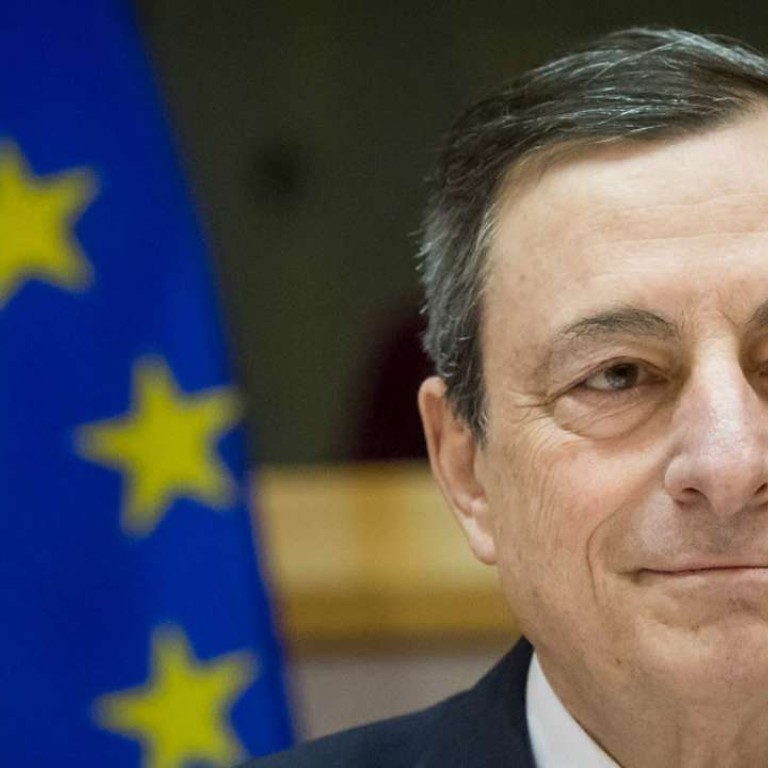
China has skin in the euro-zone economy, too
Beijing will be hoping that European Central Bank president Mario Draghi has got it right this time with his mega-stimulus package
European Central Bank president Mario Draghi has long been known for saying the institution would do whatever it takes to rescue the euro-zone economy and common currency. We are still to find out what it takes. But after the latest triple burst of mega-stimulus to stave off deflation there are fears the bank has just about exhausted its policy options. There is no doubting the boldness of new cuts to all key interest rates, pushing the deposit rate further into negative territory, an expansion of asset purchases from €60 billion (HK$520 billion) a month to €80 billion, with the inclusion of corporate bonds issued by non-financial companies, and cheap loans for banks to encourage them to lend to businesses and consumers.
But Draghi seems to have lost his touch for shoring up confidence. After markets initially reacted positively with European share prices rising and the euro weakening – the desired result – shares fell and the euro strengthened. A weaker euro would help growth and raise prices, while stronger share and bond prices would lower corporate borrowing costs.
Draghi pledged to flood the system with liquidity for as long as it takes to nurture recovery and head off a deflationary mindset, but added that the bank did not think it would be necessary to cut rates further. This was taken to mean that Germany, which opposes the stimulus, is not of a mind to tolerate any more.
Let’s hope Draghi is right, for both our sake and the continent’s. Europe is China’s biggest trade partner. China now finds itself steering a measured fiscal expansion between a tightening cycle in the US and a Europe that is pulling out all the stops to spark growth and avert a deflation trap.
It is important to the world economy, but particularly Europe, that China succeeds. But it needs to reconcile a growth target of 6.5 per cent over the next five years with the need for structural reform if high growth is to be sustainable. Despite Beijing’s hopes that fiscal policy can take over from monetary policy in bolstering the economy, Finance Minister Lou Jiwei (樓繼偉 ) says there is limited room for China to further expand its budget deficit.

